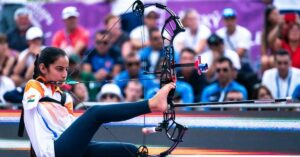Exclusive: Meet India’s First Woman to Win An Olympic Medal & Lift a Nation
"My father and some relatives weren't very keen about me competing in weightlifting. They would say ‘you’ll break our bones, who would marry you’. But my mother stood firm", says the legendary Karnam Malleshwari. #WomensDay #SheDared
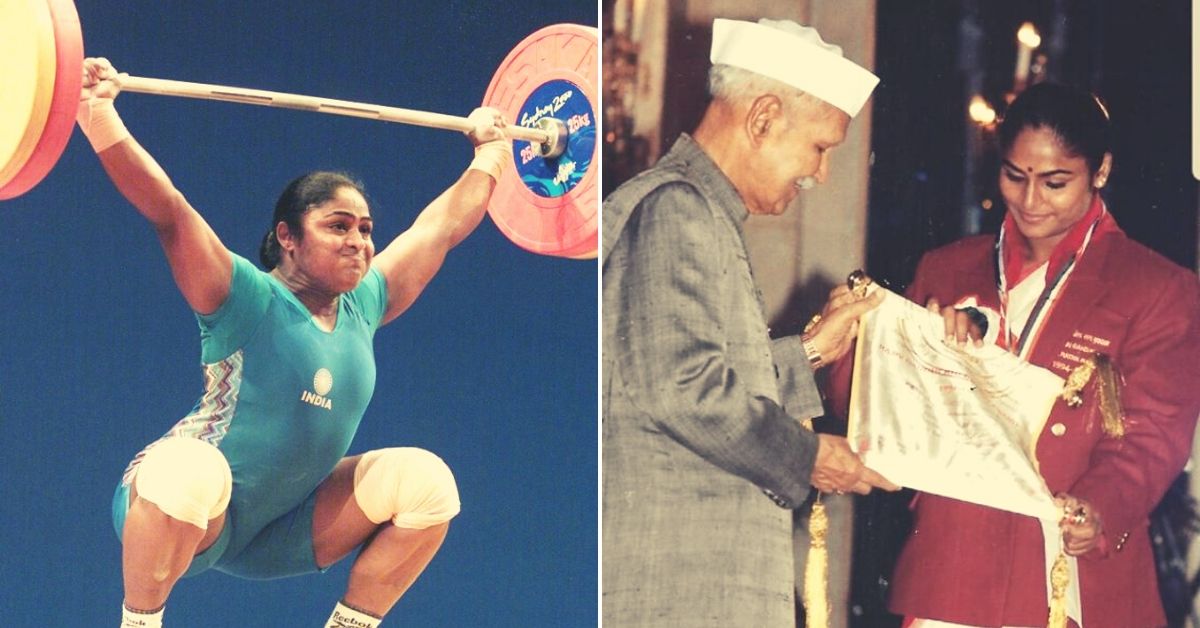
September 19, 2000, the day when legendary weightlifter Karnam Malleswari won the bronze medal (69 kg) in the Sydney Olympics and became the first Indian woman to win an Olympic medal, will long remain in the memory of all Indian sports fans.
“It’s a day I can never forget for three reasons. One, I missed out on the gold medal after faltering in my last attempt. I could have quite easily finished in first place. Bronze is a great achievement, but a gold medal would have been special considering how I had trained my entire life for that moment,” says Karnam Malleswari, in a conversation with The Better India.
She had faltered in her attempt to lift 137.5 kg. If she had attempted to go for 132.5 kg in her final attempt, she could have finished on top.
“Secondly, I was the only one to bring home a medal among the entire Indian contingent of the 2000 Sydney Olympics. Thanks to my efforts, we did not come back home empty-handed. Finally, I also became the first Indian woman to ever win an Olympic medal. Before my accomplishment, the general attitude towards women athletes was that participating in the Olympics was an achievement in itself. I broke that barrier. Ever since, women have gone on to garner more medals for India than our men,” she adds.
Despite the scale of her achievement, she felt a tinge of disappointment during the presentation ceremony.
“I had come to Sydney genuinely believing that I would win the gold, and was still quite sore about missing out by 2.5 kg. Moreover, the national anthem didn’t play because I had finished third, and instead, I had to stand through the Chinese national anthem. I would have been happier winning the gold and hearing our national anthem play. However, when people started celebrating my medal and began calling me, I thought to myself that this is a significant achievement as well,” she recalls.
The Early Grind
For Malleswari, the journey to the top began in 1987 at the age of 12 under the tutelage of her first coach Neelamshetty Appanna in a thatched shed in Voosavanipeta, a hamlet in Andhra Pradesh’s Srikakulam district. She started at a time when the very idea of Indian women competing in weightlifting, a traditionally male-dominated sport, wasn’t even considered.
“We were five sisters, of which four of us got into weightlifting. Fortunately, there was a gym near my school, nd all of us were blessed with strong muscles. A weightlifting coach suggested that my father, a railway constable, get his daughters into weightlifting because of our natural strength. Moreover, it would allow us to get a decent education and a government job,” she recalls.
Her father and some relatives weren’t very keen about the idea of Malleswari and her sisters competing in weightlifting.
“They would say ‘you’ll break our bones, how can you carry such weights, who would marry you’ and that weightlifting is man’s sport, among other things. But my mother stood firm. She said that if we had an interest in the sport, we should be allowed to pursue it. Her only condition was that we maintain our focus and achieve some success. In fact, during domestic competitions, my teammates and I couldn’t afford to eat out at restaurants or hotels. In the early days, my mother would come with us carrying a small gas stove and utensils. She would buy vegetables from the local market and cook for us at the hostel or dharamshala where we were lodged,” she recalls.
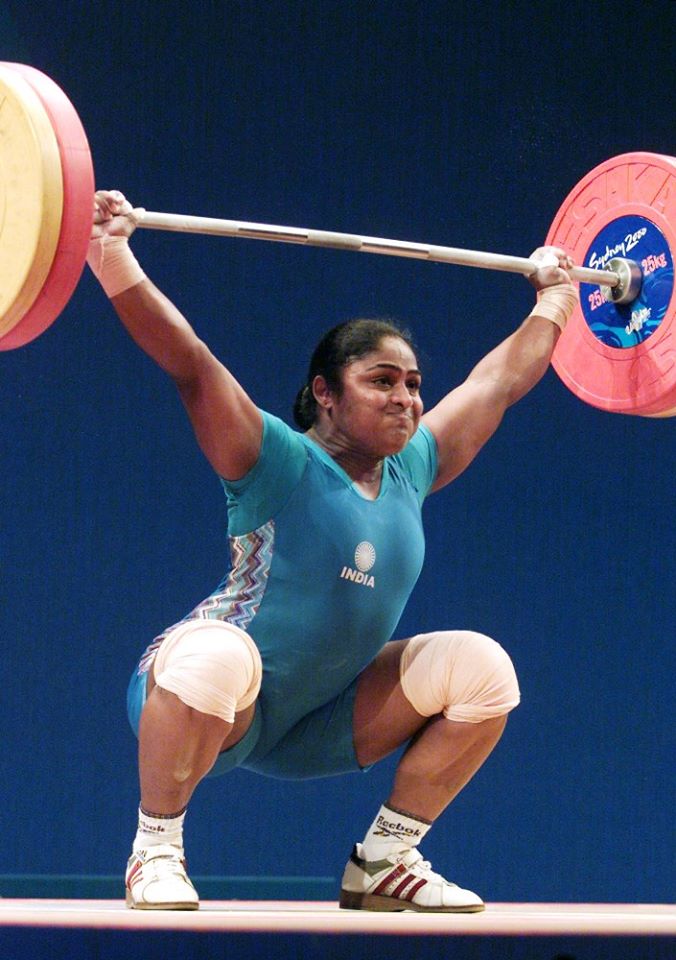
Malleswari was barely 15 when she began competing in international tournaments. As she progressed from state competitions to nationals, India camp and international tournaments, her focus just narrowed down to weightlifting.
“When I started weightlifting, I didn’t know I would end up winning medals. It all began with an interest in the sport, a desire to prove that women could be as strong as men and the fact that I also enjoyed doing it. Once I won gold in the Nationals and proceeded to perform well in international tournaments, that’s when I started believing that I could win medals for India,” she says.
In the beginning, she would practice for about four hours every day. Once she began competing in international competitions, her practice routines would go on for 10-12 hours for two events—snatch and clean and jerk.
Besides weight training, weightlifters have to perform different supporting muscle exercises for each muscle in their body. Also, taking a break wasn’t an option. “Say, after a competition I took a break for 10-15 days, my muscles would get loose and would have to start from scratch,” she informs.
Malleswari won her first international medal in the 1992 Asian Championships, followed by a bronze in the 54 kg division at the 1993 World Championships in Melbourne, Australia.
“However, watching these medal ceremonies and not hearing our national anthem or seeing the Indian flag flutter up high was something I wanted to change. The only way I could change that was by winning the gold in these World Championships. Even during training camps in Bengaluru, I would stare at the national flag, hoping one day it would flutter above me with pride. My hard work, dedication and perseverance helped me to become the first Indian woman to become a weightlifting World Champion in 1994 in Istanbul, Turkey,” she says.
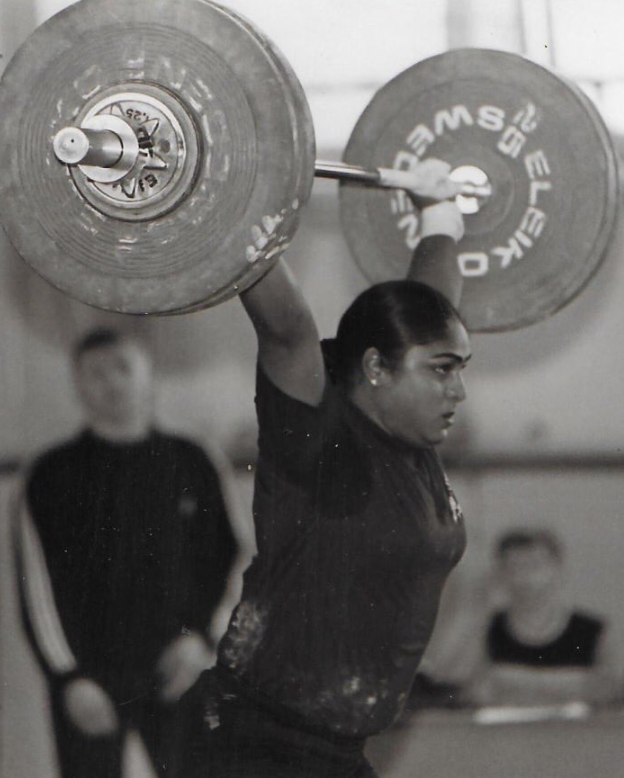
She finished second in the competition, but the winner had failed her dope test and won the gold by default. Her critics called it luck and said that no Indian woman could become a world champion. She was determined to prove them wrong next year.
At the 1995 Weightlifting Championships in Guangzhou, China, she was the only Indian woman to win the gold in the 54 kg category while the other seven weight categories had Chinese winners. Besides winning the gold, she had also set the world record, lifting a total of 202.5 kg. When the national anthem finally played, and the Indian flag waved high, there was a deep sense of satisfaction in her heart. She was 20 and a two-time world champion.
The turning point for women’s sport in India
Malleswari retired from the sport after suffering a back injury during the 2004 Athens Olympics. But the legacy she left behind was extraordinary.
Before she won the bronze in Sydney, many didn’t even believe that Indian women could win medals in competitions like the Olympics. But her win gave hope, courage and motivation to strive for the highest peak in their respective sports.
Although, it did take 12 years for Indian women—Mary Kom and Saina Nehwal—to win the next medal, they have been bringing in more medals and laurels for India than the men. With the 2020 Tokyo Olympics around the corner, Malleswari also has high hopes for Indian women weightlifters, particularly Mirabai Chanu.
“She could have won a medal in the 2016 Rio Olympics, but buckled under the pressure. With more experience in international competitions now, I firmly believe that this time she can bring home a medal, if not the gold,” says Malleswari.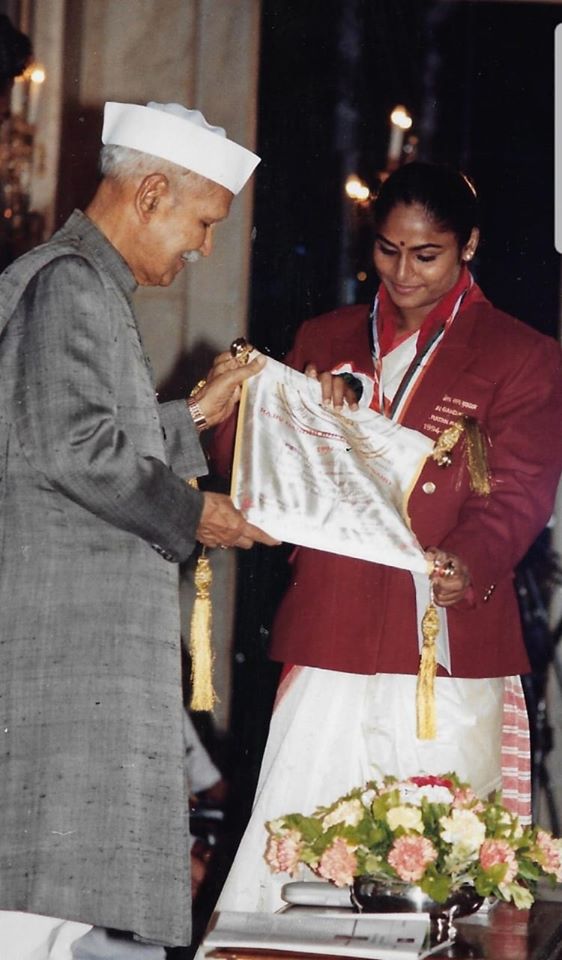
Looking back, Malleswari believes that although difficulties do exist for athletes in terms of funds and infrastructure, particularly for women, things have improved dramatically.
“For example, in 1993, we wanted to compete in the World Championships, where we were sure of winning a medal. But the Indian government said they had no money to fund our trip. It was only thanks to our sponsors, the Hinduja Sports Foundation, that we managed to make it and win a medal. Today, even for competitions like the Commonwealth Games, the government encourages us to arrive at the host country two months in advance, train and adapt to the conditions. Back in our day, we would arrive a day before the competition, attend it and fly back home the following day. Today, there is a lot more support,” she says.
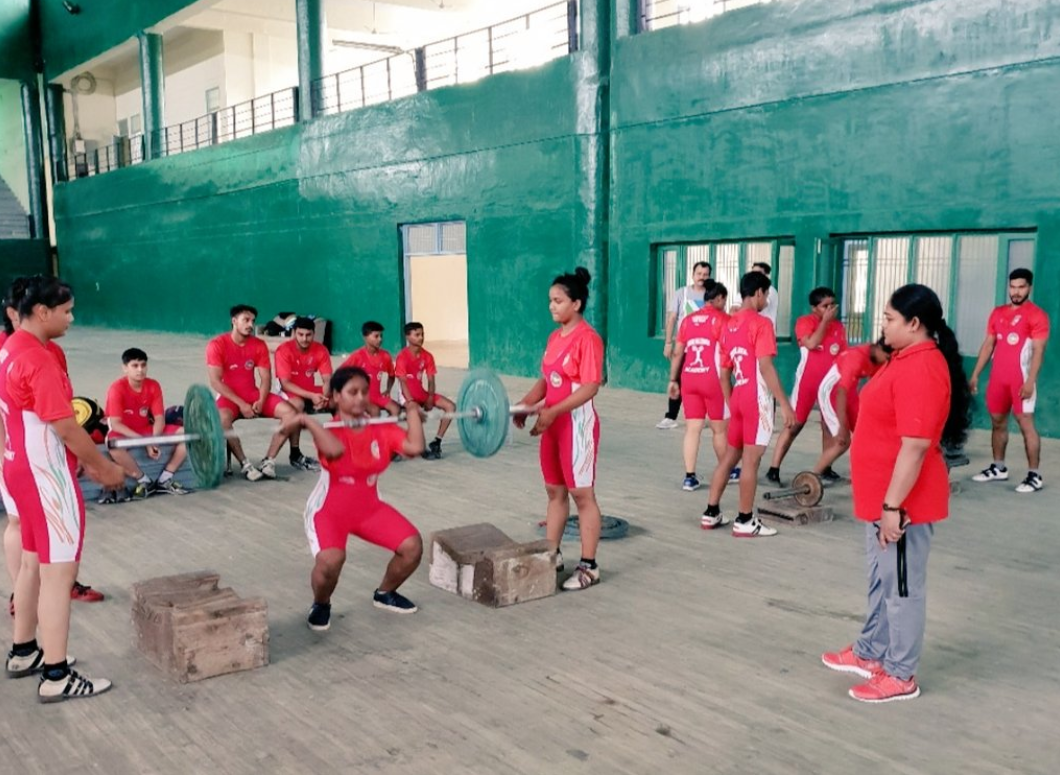
Giving back
For the past three years, she has been running the Karnam Malleswari Foundation out of Yamunanagar in Haryana, which is involved in initiatives like giving e-rickshaws to senior citizens for their local routes and providing meals at their doorstep.
She is also on the cusp of opening a world-class weightlifting academy there, which has received financial support from the government. However, she is also looking for other sponsors. “I also continue to train young weightlifters, who have begun to win medals in domestic competitions. See, we have a lot of talent in India, but lack coaching and infrastructure. With this academy, I am hoping to bridge that deficit and produce more Olympic champions for the country,” she concludes.
1st look at the ongoing construction at Karnam Malleswari Foundation.A world class center of Sporting excellence and India’s first Weightlifting & Powerlifting academy. It will provide comprehensive infrastructure to young champions including gym & training areas.#KMFoundation pic.twitter.com/MZM74PLTkL
— Karnam Malleswari, OLY (@kmmalleswari) June 15, 2019
Also Read: This Gritty Girl From Rural Bihar Is Asia’s Fastest Woman Rugby Player
(Edited by Gayatri Mishra)
Like this story? Or have something to share? Write to us: [email protected], or connect with us on Facebook and Twitter.
This story made me
- 97
- 121
- 89
- 167
Tell Us More
We bring stories straight from the heart of India, to inspire millions and create a wave of impact. Our positive movement is growing bigger everyday, and we would love for you to join it.
Please contribute whatever you can, every little penny helps our team in bringing you more stories that support dreams and spread hope.






